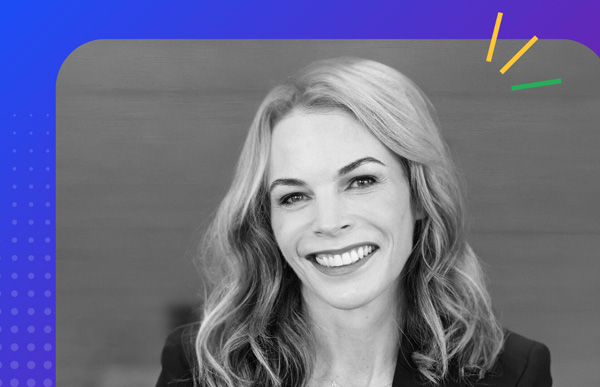One in Eight Australian Workers Quit During Probation New Research Reveals

- It now takes 35 days for new hires to become fully productive in their role, up from 24 days in 2023
- Improving productivity is a top priority for Australian businesses in 2024
- But lack of employee engagement is the top barrier holding productivity back
21 May 2024 – Australian businesses are struggling to hold onto their new recruits with one in eight (13%) leaving during the probation period.
That’s according to ELMO’s 2024 HR Industry Benchmark Report which identifies the key challenges and priorities for businesses, according to a sample of 700 HR professionals in Australia.
The report found it now costs an average of $20,000 to hire a new employee, yet around one in eight are failing to progress past their probation. What’s more, it now takes 35 days for a new recruit to become fully productive in their role, an increase of 11 days compared to the 2023 survey.
ELMO CEO Joseph Lyons says the figures are eye-opening, not just for HR leaders but for the broader C-suite too.
“At a time when productivity is front of mind for most businesses, it’s worth asking whether your talent processes are as efficient as they could be,” he says.
“Given the cost of hiring and the time it takes for recruits to get up to speed, it’s essential for HR leaders to know how successful their hiring and retention efforts really are.
“Otherwise, they could be wasting time and money, hindering productivity in the process.”
The Report’s findings closely mirror ELMO’s latest Employee Sentiment Index, a survey of over 1000 Australian workers, which reported one in eight (12%) new recruits are leaving within the first year and also asked respondents why they left.
Two in five workers (40%) said the main reason for leaving within the first year was due to the job or organisation failing to match the expectations set during the recruitment process. One in three workers cited a poor impression of the workplace (34%) and a poor first impression or relationship with their manager (32%).
The survey also revealed that the first 30 days in a new workplace is the most critical time period for recruits, with two in five workers (38%) knowing if their new job was the right move within one month and just over a quarter (27%) making up their mind within one week or less.
Lyons says the Index’s findings further highlight how critical the employee experience is to retaining new talent.
“Meeting expectations and creating a positive first impression are vital for retaining new talent and businesses only have a small window of opportunity in which to do this,” he says.
“The better an organisation understands the success of their onboarding programs, the better position they will be in to retain new talent and minimise the impact on overall productivity and ultimately the bottom line.”
Employee engagement ranked as the top barrier holding back productivity
The Benchmark report also identified productivity as a top priority for Australian businesses in 2024. But, according to HR professionals, if business leaders want to drive greater productivity, they need to tackle employee engagement first.
A lack of employee engagement ranked as the top barrier holding back productivity in Australian organisations, followed by leadership capability and a lack of prioritisation.
Meanwhile, the uncertain economic conditions were highlighted as the biggest challenge facing local businesses this year, followed by a shortage of labour and hybrid work.
Just under a third (27%) of HR professionals say they plan to use alternative employment arrangements, such as contractors, to cope with the economic insecurity this year. The same number (27%) plan to restructure their organisations.
Around a quarter (23%) say they’ll reduce pay increases or freeze pay, 19% plan to reduce or scrap bonuses and 17% expect to make redundancies.
Lyons says organisations are taking a cautious approach this year as they wait to see whether interest rates will come down.
“The economic uncertainty is all the more reason for HR leaders to take a data-led approach to their strategy for 2024,” he says.
“Without visibility of key HR metrics and the costs involved in hiring and retaining talent, it’s impossible to manage budgets wisely. This year’s report drives home the importance of easily accessible data to view HR strategy from a commercial perspective.”
You can find the ELMO 2024 HR Industry Benchmark Report here. To find out more about how the ELMO 2024 HR Industry Benchmark Report is constructed, see the methodology.
Media Enquiries
Angela George | Think Communications | [email protected]
About the ELMO 2024 HR Industry Benchmark Report
The 2024 HR Industry Benchmark Report survey was conducted by Censuswide, among a sample of 700 HR Professionals in Australia and 500 HR Professionals in New Zealand. Respondents were aged 18+ and employed in middle management level and above, excluding sole traders and organisations with less than 20 employees.
The research was conducted online, with respondents sourced via an online
access panel. The data was collected over a 12-day period from January 22
2024 to February 2 2024. Censuswide abides by and employs members of the Market Research Society and follows the MRS code of conduct which is based on the ESOMAR principles.
About the ELMO Employee Sentiment Index
The ELMO Employee Sentiment Index offers a regular pulse check on the actions, attitudes and behaviours of Australia’s employees. The quarterly report provides analysis of the prevailing sentiment within the workforce in order to track changes in perceptions around job security, wellbeing and the economy, as well as topical issues impacting Australian workers.
For this wave of the survey, respondents were asked to reflect on the three-month period
between January 2024 to March 2024. The research was commissioned by ELMO Software and conducted by Lonergan Research in accordance with the ISO 20252 standard. Lonergan Research surveyed 1,025 Australian workers aged 18 years and over between 15th March 2024 and 25th March 2024.
About ELMO Software
Founded in 2002, the ELMO Group comprises ELMO Software in Australia, New Zealand and the UK, and Breathe HR in the UK. It is the trusted provider of HR technology solutions to 16,000+ small and mid-sized organisations and two million end users.
With a comprehensive suite of ISO-certified solutions that span the full employee lifecycle, ELMO Software is designed to scale as organisations grow. Flexible and configurable, ELMO’s one-stop HRIS fits to your specific needs and workflows.
Through powerful technology, automation, data and analytics, ELMO Software empowers HR professionals to play an integral role in company decision making. For more information, please visit www.elmosoftware.com.au or follow ELMO Software on LinkedIn.
 HR Core
HR Core 









